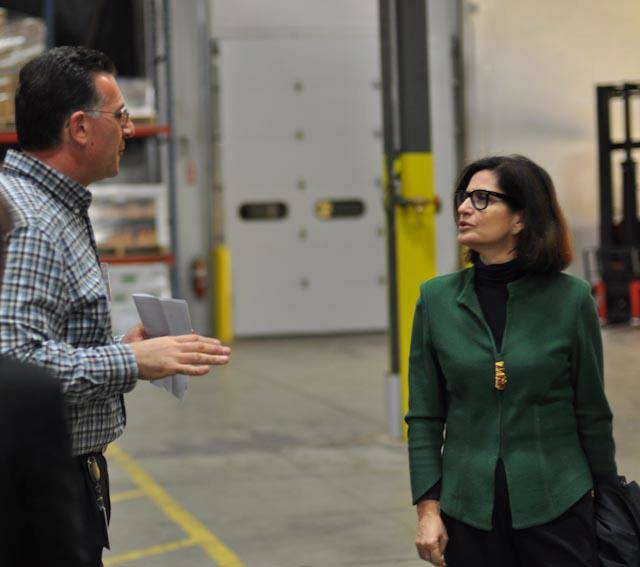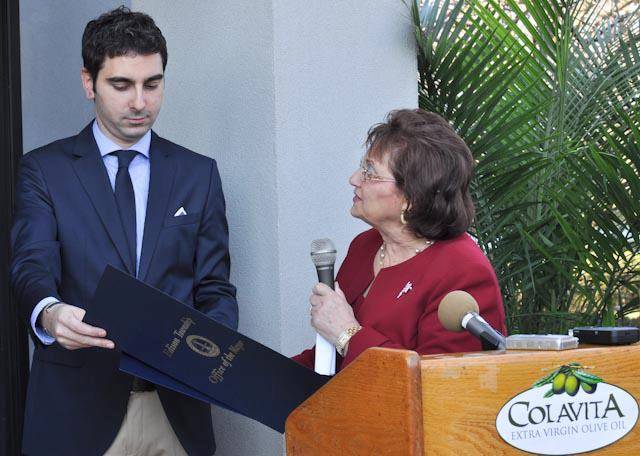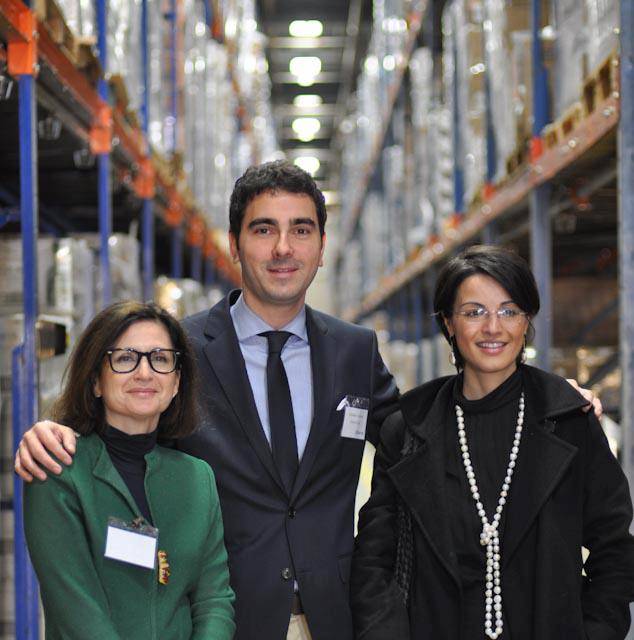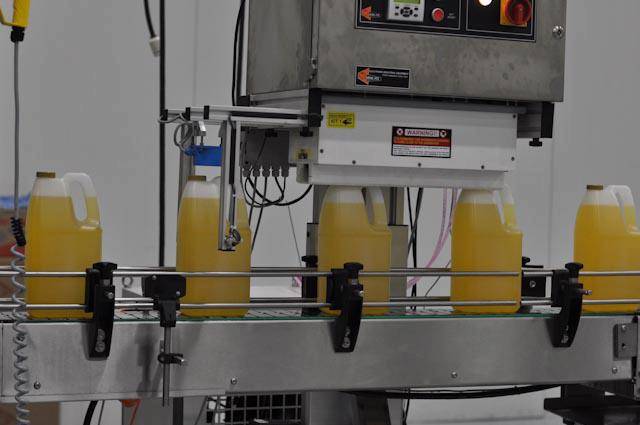Colavita. An Italian Success Story Across Generations
Sant’Elia Pianisi, in the province of Campobasso, 1935. Four generations ago. In Molise a company is born, one that is dedicated to olives and oil production. It’s a small family business but soon it becomes vital to the local economy.
But the real breakthrough came in the mid-1970s when the founders’ sons, Enrico, Leonardo, and Giovanni begin mass producing extra virgin olive oil under the brand name Colavita.
This was at a time when we didn’t know about the benefits of the Mediterranean diet but the Colavitas predicted the return to a healthier lifestyle, one that’s immediately recognizable and appreciated. Their products are based on quality, local agricultural production, and authenticity.
Colavita began to soar, opening a factory in Campobasso. And that was only the beginning. Today the company, which is still only produces oil, has a sales network that spans the world, from Europe to the U.S., Canada, Australia, Japan, and South America. The Colavita brand is present in 72 countries.
It takes an understanding of the company’s history to better appreciate the emotion on the faces of the Colavita heirs at the opening of their new facility in New Jersey, with a huge Italian flag flying over the entrance.
The pride of their heritage was reflected in their features and boasted the satisfaction of people who have devoted a lifetime to their values. And the overall sense—which isn’t always the case when dealing with business people—was that it wouldn’t be hard to imagine them with their sleeves rolled up, working in the fields from where their products come.
Their faces are friendly and open but firm, carrying the expression of a successful family business. “We had to work hard during very difficult times; when we arrived the general public didn’t know anything about extra virgin olive oil,” explained Enrico Colavita, who founded Colavita USA in 1978 with his local partner John Profaci.
“When good people find good things, this can happen. It happened 32 years ago when I met Enrico.” Profaci said. Now part of the Colavita family, Profaci was crucial to their success in the U.S. “’I would like to sell my oil in the U.S. Let’s try and see if I can sell it,’ I said.”
He told us about their early start: “First we gave demonstrations in stores, then in restaurants with Italian chefs. This was what they were looking for: quality and taste.”
He reveals a secret to their initial marketing: “Trends in this country do not start in supermarkets but in restaurants.”
“We struggled because at the time the Mediterranean diet was not well-known in America,” Profaci continued. “We had to explain to Americans that extra virgin olive oil was considered a product for the elite."
His conclusion captures his sense of satisfaction: “We are still the only Italians who distribute olive oil throughout the entire country. Giovanni Colavita was two years old when he met me and today he’s my boss!” Profaci said, referring to the young CEO.
We then entered the facility that was festively decorated and full of people who came to celebrate.
The atmosphere was that of a big, popular festival, with the best food and smiling faces. As with all important occasions in an Italian village, the priest gave a blessing, Mayor Antonia Ricigliano said a few words, and there were appearances by Italian dignitaries such as Consul General Natalia Quintavalle and Deputy Consul Lucia Pasqualini of New York, and Consul Andrea Barbaria of New Jersey.
At the ribbon cutting ceremony, every generation of Colavita, including the youngest heir, was attentively listening to every word of the presentation.
At the microphone, Enrico Colavita, obviously moved, discussed the Italian family company that is rising to the challenges of a global market despite the economic crisis and competition.
Consul General Natalia Quintavalle reiterated the company’s success with the hope that “more Italian companies will follow the example of Colavita, and we thank them for bringing an excellent product to the United States.”
Antonia Ricigliano, Italian-American mayor of Edison, presented a proclamation to the Colavita family which declared March 30, 2012 as Colavita Extra Virgin Olive Oil Day.
We interviewed Mayor Antonia Ricigliano, a third generation Italian American whose relatives were originally from the Sicilian province of Enna. Ricigliano recalled her mother in the kitchen, her parents who spoke Sicilian. “I continue to cook Italian as well, and I’m proud. I love to make lasagna, ravioli, ragù. I do not speak Italian, but I understand it!”
She also remembers when, 15 months ago, Colavita and Profaci met with her to talk about the plant and how she was immediately happy to welcome them to her city with 20, 000 Italian-American residents.
“Today is a beautiful day for all the people who work here and we celebrate the family that works together. This is what the Italian people should do: begin with the family.”
We toured the entire facility with Giovanni Colavita, the young CEO of Colavita USA, who described in detail the activities that take place here. He told us about a typical day of work, among offices, machinery for bottling oil, warehouses for storage, deliveries, sorting, and shipment of merchandise.
Over 65,000 square feet are dedicated not only to Colavita products, but also to other Italian products sold in the United States. Colavita has exclusive rights to import, distribute, and promote brands such as Perugina Baci, Cirio, and San Benedetto.
Giovanni Colavita pointed out that in a sense the space looks to the future since it’s designed to encourage further expansion. He mentioned the recent success of the collaboration with the Shop Rite supermarket chain. “We are the most distributed pasta and they have doubled their sales.”
After our tour with Giovanni, Enrico Colavita told us: “The nice thing is that young people want to continue to promote our products and Italian products in general. And we don’t know what jealousy is; we are friends with our competitors.”
At the end of the story of this inauguration, we should also mention another Colavita gem: the Colavita Center for Italian Food and Wine at the prestigious Culinary Institute of America. “It was created to transmit knowledge of traditional and original Italian products to the new generation,” said Profaci. “We also offer scholarships to assist students with interests in Mediterranean cuisine.”
One of the keys to Italian success in the world is to know how to use tradition, enhance it, and export it while not overlooking modern innovation. Colavita has been able to do this by focusing on its own family and capitalizing on its strengths, from generation to generation, and investing in young people.














































i-Italy
Facebook
Google+
This work may not be reproduced, in whole or in part, without prior written permission.
Questo lavoro non può essere riprodotto, in tutto o in parte, senza permesso scritto.